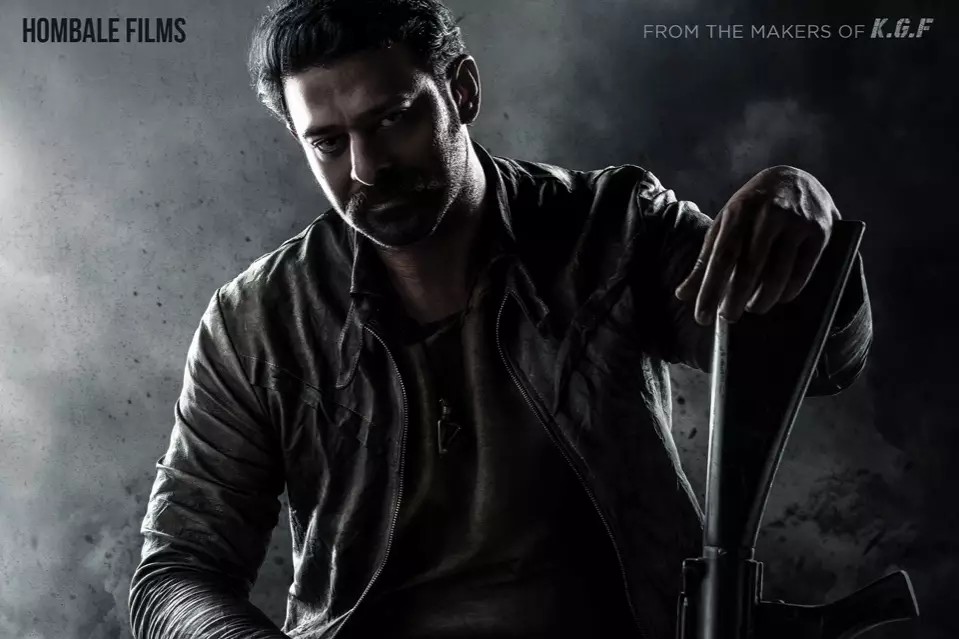Prabhas, known as one of the biggest stars in Indian cinema, is making waves again with his latest film Salaar: Part 1 – Ceasefire. Produced by Vijay Kiragandur’s Hombale Films, the action epic has already proven to be a hit, grossing an estimated 144 crore ($17.3M) worldwide on its opening day. Salaar: Part 1 tells the story of a gang leader who makes a promise to a dying friend by taking on other criminal gangs. Directed and written by Prashanth Neel, the film also stars Prithviraj Sukumaran, Shruti Haasan, and Jagapathi Babu. Prabhas, who made history with the Baahubali movies, teams up for the first time with Neel, known for the hugely successful Kannada franchise K.G.F. This collaboration represents the continued crossover between regional industries in India.
In an exclusive interview with Deadline, Prabhas reveals that he was drawn to the project because of its unique script and the opportunity to collaborate with a talented team. He saw Salaar as a chance to explore something different in his career. The combination of an intriguing narrative and character made him excited to be part of the film.
When asked about what sets Salaar apart from his previous films, Prabhas highlights the compelling storyline, intense characters, and the vision of director Prashanth Neel. He believes that Salaar offers him a fresh and challenging role, promising a unique and impactful cinematic experience. The film pushes boundaries and takes him out of his comfort zone, allowing him to grow as an actor.
Collaborating with Prashanth Neel has been a rewarding experience for Prabhas. He praises Neel’s clarity of vision and passion for storytelling, which made the filmmaking process enjoyable and enriching. The synergy between them has brought the character and the narrative to life on screen.
Prabhas confirms that there will be a sequel to Salaar, and viewers will catch a glimpse of its continuity at the end of Part 1. He expresses his gratitude for the opportunity to work with Prashanth Neel in both parts of the film. Prabhas believes that Part 2 will surpass the scale and grandeur of Part 1, promising an even greater cinematic experience for the audience.
After the success of the Baahubali films, Prabhas is often asked if he feels the need to top himself with each subsequent project. He states that his focus is not on topping past successes but on delivering his best in every project. Prabhas approaches each film with a commitment to choosing diverse and challenging roles that allow him to grow as an actor. He believes that true success lies in the quality of the work rather than attempting to surpass previous achievements.
Prabhas shares his thoughts on the current sentiment in India regarding the regional industries. He believes that the country is shifting towards a more unified approach to cinema, transcending regional boundaries. There is a growing appreciation for diverse storytelling, and discussions about Indian cinema as a whole, rather than limiting it to Bollywood, Tollywood, or Kollywood, are becoming more common. Prabhas sees this as a positive indication of the evolving landscape of Indian cinema.
According to Prabhas, Indian audiences, both within the country and in the diaspora, are increasingly embracing diverse content. There is a demand for meaningful stories, fresh narratives, and innovative filmmaking across genres. This evolving taste indicates a broader appreciation for quality cinema. Prabhas believes that the audience’s evolving preferences will continue to shape the future of Indian cinema.
When asked about his dream collaborators in the future, Prabhas mentions directors like Rajamouli and Prashanth Neel, with whom he has already worked. He expresses his excitement about collaborating with filmmakers like Nag Ashwin (on Kalki 2898 AD) and Sandeep Vanga (on Spirit). Prabhas believes that working with these directors will create a great experience for the audience and himself.
Prabhas’s involvement in Salaar: Part 1 demonstrates his commitment to challenging himself as an actor and his belief in the power of diverse storytelling. The film’s success reflects the evolving tastes of Indian audiences, who are increasingly embracing quality cinema across genres and transcending regional boundaries. Prabhas’s collaborations with acclaimed directors further contribute to the growth of Indian cinema and promise exciting projects for both himself and the audience. With Salaar: Part 2 on the horizon, fans can anticipate a continuation of the epic journey that Prabhas and Prashanth Neel have embarked upon together.


Leave a Reply